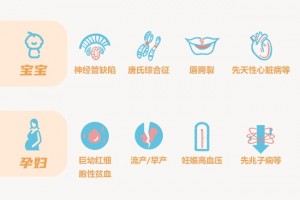
全球的高级教育本钱都在稳步上升,而膏火上涨表现了一种趋势:按对收入的调查结果来供给补助以担负本钱的添加...
Free exchange
自在沟通
Terminal degrees
最高学位
The meaning of a debate about the cost of higher education
高级教育本钱之辩的含义
IN MANY WAYS the flood of bold, progressive policy proposals coursing across America’s political landscape began in 2015, when Bernie Sanders, an independent senator from Vermont, put a plan to make higher education at public universities free at the centre of his upstart campaign for the presidency. Then the idea seemed radical, even gimmicky. Now it is noteworthy when leading Democrats oppose the notion. Yet some do, for example Pete Buttigieg, the mayor of South Bend, and their arguments still pack a punch. Why indeed should taxpayers’ money be spent on the children of the rich rather than more generous financial aid for the poor? The Democratic debate over free college is in fact part of a deeper disagreement about how best to structure a welfare state.
从许多方面来说,这一席卷美国政治舞台的斗胆、前进的方针主张的激流始于2015年。其时来自佛蒙特州的独立参议员伯尼·桑德斯(Bernie Sanders)在他夺人眼球的总统竞选活动中,将一项公立大学免费高级教育方案作为自己的中心纲要之一。其时这个主意听起来很急进,乃至像个噱头。现在,民主党首领们对立这种提议,这让它变得更值得重视。有些人的确不认同它,比方南本德市(South Bend)的市长皮特·布蒂吉格(Pete Buttigieg),并且他们的观念依然很有说服力。为什么纳税人的钱应该花在有钱人的孩子身上,而不是更大方地赞助贫民?民主党关于免费上大学的争辩实际上关系到怎么最好地构建福利国家的更深层不合。
Across much of the rich world, a public-university education is free or nearly free, apart from the cost of books and living expenses. (Danish students even receive a stipend to help pay for such things.) But those in America and Britain pay tuition fees which are high and growing higher. In Britain, a change in the law in 1998 allowed public universities to begin charging. The average tuition fee at four-year public universities in America has roughly tripled over the past three decades after adjusting for inflation. Rising fees represent an evolution towards a means-tested approach to covering the rising cost of higher education, which has gone up steadily all around the world. Places like America and Britain pass some of this increase on to students in the form of higher fees, with the understanding that poorer students will receive financial aid while richer ones will bear the full tuition bill.
在许多兴旺国家,公立大学教育是免费或简直免费的——书本费和生活费在外(丹麦学生乃至还能拿到一笔津贴来补助这部分开支)。但美国和英国的学生要付出高额膏火,并且渐渐的升高。英国在1998年修订了法令,答应公立大学开端收费。经通胀调整后,美国四年制公立大学的均匀膏火在曩昔30年里添加了约两倍。全球的高级教育本钱都在稳步上升,而膏火上涨表现了一种趋势:按对收入的调查结果来供给补助以担负本钱的添加。像美国和英国这样的当地经过前进膏火将部分添加的本钱转嫁给学生,它们以为贫穷学生会取得助学金,而殷实学生将承当悉数膏火。
To many politicians in these places, this seems just. Unlike primary or secondary education, university is a minority pursuit in most advanced economies. Across the OECD, a club of mostly rich countries, only about 45% of adults aged 25 to 34 have some post-secondary education. Those people tend to come from richer families and to earn more than the population as a whole. A universal programme that mostly benefits a well-off not-quite-half of the country would seem a strange aspiration for egalitarian-minded politicians (though less strange for those desiring young people’s votes). Better to target aid at those from poorer families.
在这些当地的许多政客看来,这是公正的。与小学或中学教育不同,在大多数兴旺经济体,大学是少数人的寻求。在成员首要为殷实国家的经合安排(OECD)中,年龄在25岁到34岁之间的成年人中只有约45%承受过高级教育。这些人往往来自较殷实的家庭,收入高于总体水平。关于推重相等主义的政客来说,一项遍及方案首要惠及的是不到全国人口一半的殷实人群,似乎是个古怪的希望(虽然关于那些巴望取得年轻人投票的人来说不怎么古怪),最好把协助给予那些来自贫穷家庭的人。
An economic approach points in a similar direction. A post-secondary education represents an investment in a person’s future earning power, thanks to the skills obtained in school, the connections and credentials gathered along the way, and the signal a tertiary degree provides to employers. Since students reap most of the benefit, they should bear the cost (borrowing against future earnings if need be), lest subsidies encourage people to spend years at university that might be better allocated elsewhere.
经济上的考量也指向了相似的方向。高级教育是对一个人未来挣钱才能的一种出资,优点是他在校园取得的技能、一路走来收成的人脉和证书,以及大学学位向雇主宣布的信号。已然学生取得了大部分的优点,他们理应承当本钱(假如需要的话,用未来的收入做典当借款),而不是由于有补助,而把原本用来做其他事或许更好的几年时刻花在大学里。
Against this, supporters of free university marshal a number of practical arguments. University attendees are more likely to come from wealthier families precisely because university is not free, they say. There is something to this. Higher tuition charges do push some people away from post-secondary education. Several analyses of the introduction of tuition fees in Britain found a negative effect on university attendance. A report produced by the Institute for Fiscal Studies, a think-tank, estimated that an increase of 1,000 ($1,243) in tuition fees is associated with a decline of 3.9 percentage points in the rate at which recent school-leavers choose to go on to university. Work by Thomas Kane of Harvard University found a response of similar magnitude in America. And research by Susan Dynarski of the University of Michigan and Judith Scott-Clayton of Columbia University concludes that both attendance and completion rates are higher when education is more affordable. Their work also suggests that the tangle of eligibility rules and application processes students must navigate to get financial aid can lessen its benefits.
对此,支撑免费大学教育的人提出了一些有用的论据。他们说,上大学的人更有或许来自殷实家庭,原因正是大学不是免费的。这有些道理。更高的膏火的确把一些人推离了高级教育的大门。对英国公立大学征收膏火的几项剖析发现,膏火对大学入学率有负面影响。据智库英国财务研讨所(Institute for Fiscal Studies)的一份陈述预算,膏火每上涨1000英镑(1243美元),近期高中结业生挑选持续上大学的份额就下降3.9个百分点。哈佛大学的托马斯·凯恩(Thomas Kane)的研讨发现美国的状况也相似。密歇根大学的苏珊·戴纳斯基(Susan Dynarski)和哥伦比亚大学的朱迪思·斯科特-克莱顿(Judith Scott-Clayton)的研讨得出的结论是,当教育本钱更低时,入学率和结业率都更高。他们的研讨还标明,助学金请求资历和请求程序的紊乱会弱化它的优点。
Free tuition, by contrast, is simple to administer and easy to understand. The rich, furthermore, can pay for their privilege later in life through systems of progressive taxation. (Mr Sanders would pay for his plan through a tax on financial transactions; his Democratic rival, Senator Elizabeth Warren, would fund a free-college programme with a tax on multi-millionaires.) In any case, many young people from well-off households will attend pricey private universities rather than free public ones.
相比之下,膏火全免施行起来简洁又易于了解。此外,有钱人能够在日后经过累进税制为自己得到的优点买单。(桑德斯将经过对金融交易纳税来为他的方案供给资金;他的民主党对手、参议员伊丽莎白·沃伦[Elizabeth Warren]将对千万富翁纳税以赞助一项大学免费方案。)不管怎么,许多来自殷实家庭的年轻人将就读贵重的私立大学,而不是免费的公立大学。
But the most powerful arguments for free university are about values rather than economic efficiency. To politicians like Mr Sanders, a post-secondary education is a part of the basic package of services society owes its members. There are broad social benefits to a well-educated citizenry, because new ideas allow society as a whole to prosper and cultivating an informed population in an increasingly complex world probably takes more than 12 or so years of schooling. Amid constant technological change, a standing offer of free higher education may represent an important component of the social safety-net. Universality reinforces the idea that free education is not an expedient form of redistribution, but part of a system of collective insurance underpinning an egalitarian society. To progressive politicians, means-tested services send the message that government programmes are for those who cannot help themselves, whereas universal programmes are a means by which society co-operates to help everyone.
但支撑免费念大学最有力的论据关乎价值观,而非经济功率。在桑德斯这样的政客看来,高级教育是社会应给予其成员的根本服务的一部分。受过杰出教育的公民能够带来广泛的社会效益,由于新思想会让整个社会昌盛开展;而在一个日益杂乱的国际中,要培养出具有满足学问的人群,只上12年左右的学或许不行。在不断的技能革新中,长时间供给免费高级教育或许是社会安全网的一个重要组成。“遍及”强化了这样一种观念,即免费教育不是一种再分配的权宜之计,而是支撑起相等主义社会的团体保障系统的一部分。对前进的政客来说,以收入为准供给服务所传递的信息是政府项目是为那些无法自助的人服务的,而全民项目则是整个社会协作以协助所有人的手法。
Ironically, such values-based arguments, however one feels about them, are undercut by rising inequality. As the rich pull away from the rest, their increased political power may stymie tax rises needed to fund universal public services. Meanwhile for progressive politicians the need to target available funds at the worst-off in society grows more urgent; in America, the argument that the children of billionaires should not receive a government-funded education takes on greater moral as well as practical weight. It is probably no coincidence that tuition fees are lowest in places with the most equal income distributions (see chart). Strong safety-nets compress the income distribution. But inequality may also make the sorts of comprehensive public services that underpin egalitarian societies ever harder to sustain.
挖苦的是,不管人们怎么看待这些根据价值观的观念,它们都被日益加剧的不相等这一现状削弱了。跟着有钱人与其余人群摆开距离,他们日益添加的政治权力或许会阻止为全民公共服务供给资金的增税办法。与此同时,关于前进政客来说,将可用资金用于社会最贫穷人群的需求变得更火急了。在美国,以为亿万富翁的子女不该承受政府赞助的教育的观念在道德上和实践中都更有影响力。收入分配最相等的区域膏火最低,这或许并非偶然(见图表)。强有力的安全网紧缩了收入分配差异。但不相等也或许使支撑相等主义社会的归纳公共服务越来越难保持。






